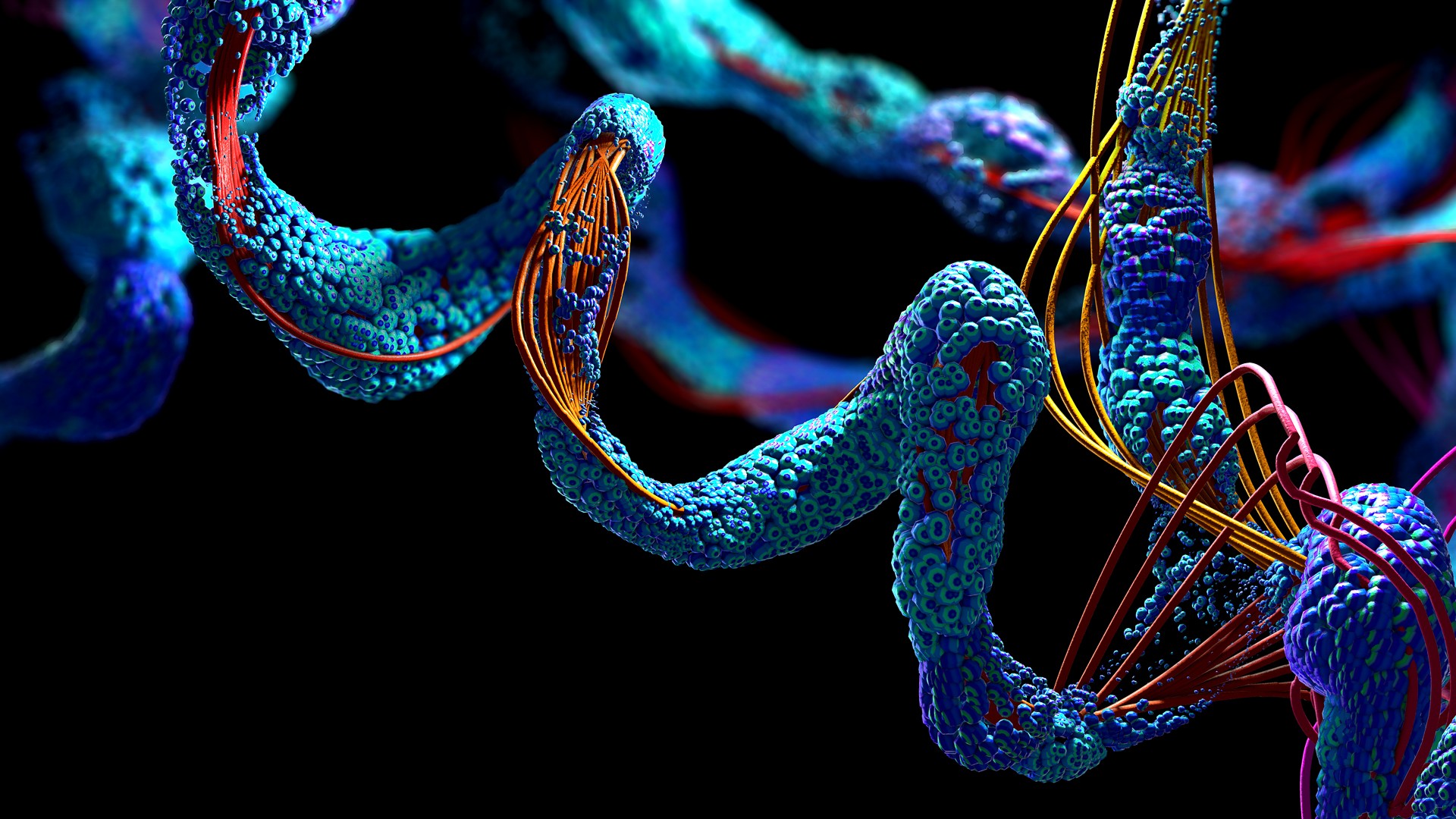
This master's programme is based on both physics and chemistry and will give you a thorough grounding in nanoscale properties and hands-on experience in experimental techniques. Chalmers is leading the development of quantum computing in Sweden, and you will be right at the forefront of the global race to take the technology further. You will also have the unique opportunity to work in world-class facilities such as our cleanroom.
The programme is ideal if you are interested in an international career in the field of nanoscience and nanotechnology, both at the fundamental level and in the design and creation of components at the nanoscale.
Nanotechnology master's programme at Chalmers
The master’s programme in Nanotechnology is tailored towards you who are aiming at international careers in the field of nanoscience and nanotechnology, both in fundamental nanoscience and in the design and creation of components on the nanoscale.
Future applications within electronics, telecommunication, and information systems, including quantum computers, medicine, and natural or artificial biosystems build upon progress in nanoscale technologies. On the nanoscale, new physical, chemical, and biological properties become important, and research often takes place on the borders between these disciplines. Proficiency in the theoretical and practical aspects of these fields will be important both within industry and academia.
Besides equipping you with a solid theoretical background in physics, chemistry, and technology of nanoscale systems, the programme will also provide you with knowledge of the innovative possibilities of nanotechnology and ample hands-on experience in experimental techniques.
As a unique feature of the programme, you will become part of the research at Chalmers and have access to our cleanroom and other world-class facilities for labs and group projects. This means that you will have the opportunity to learn how to make superconducting quantum circuits, in close collaboration with researchers building the Swedish quantum computer at the Wallenberg centre for quantum technology. The specialization profile in quantum engineering is developed in close collaboration with the research effort to build a superconducting quantum computer at Chalmers.
Our cleanroom is one of the few cleanrooms worldwide where master's students can carry out their projects. You will also be introduced to other modern laboratories for both manufacturing and analysis already during your first year. You will have the possibility to continue working in the laboratories as part of your master's thesis.
Science on the nanoscale is typically carried out either in a “bottom-up” approach, where functional nanostructures are built starting from molecules or in a “top-down” approach by nanostructuring of bulk materials and using thin films. The core curriculum consists of a handful of compulsory courses that create a solid basis for both approaches. The programme also includes several semi-compulsory courses, creating several possible tracks within the program, as well as a number of courses that can be chosen to provide you with a deeper knowledge of your choice of an area within nanotechnology. The conclusion of the programme consists of a thesis based on a half-or full-year research work carried out with some of the researchers in the area, either within our departments or with industrial partners.
Topics covered
The subjects of physics, biology, chemistry, and technology of nanoscale systems are fundamental areas in the Nanotechnology master’s programme. The courses included in the programme plan handle topics such as nanomaterials chemistry, quantum technology and superconductivity.
Career
With a master’s degree in Nanotechnology, you will play a key role in tomorrow’s frontier of nano-innovation in industry or academia. Careers in nanotechnology are motivated by the broad interdisciplinary knowledge about how to control matter down to an atomic scale. Your skills to design new materials and devices with applications in energy production, medicine, and electronics mean a constant demand for your knowledge in society.
A career in nanotechnology would, for instance, mean that you will be working with various nanoparticles. The nanoparticles are effective for the drug delivery and detection of diseases at early stages, creating job opportunities in medicine. You might even find a position where you can address public concerns regarding the environmental impact of nanomaterials and their possible toxicity.
Other potential jobs require technologies to create nm-sized electronic devices involving deep knowledge of thin-film deposition techniques, micro-electro-mechanical systems, electron microscopy and lithography. There are careers related to size-dependent properties such as quantum confinement in nanoparticles and devices, resulting in new functionalities and effects.
Graduates from this programme go on to work as heads of industrial R&D departments, research engineers and consultants and end up in academic positions as well. Finally, you can also dedicate yourself to one of the greatest present-day challenges - building a quantum computer.
Research
The master's programme has a clear connection to frontline research and many course projects are embedded in actual research projects. Nano research at Chalmers has a strong infrastructure with advanced laboratories and cleanroom facilities, which support a broad spectrum of activities involving over 150 researchers. Our industrial collaboration is well established and we have successfully launched several spin-off companies. The connection to one of Chalmers' Areas of Advance, Nanoscience and Nanotechnology, further enables interdisciplinary collaboration within Chalmers and reinforces collaboration with academia, industry and society throughout the world.
The research conducted comprises three profile areas:
- Nanophysics research, with a top-down perspective, includes studies of engineered nanosystems such as quantum computers, nanoelectronics and spintronics, applications and fundamental science of carbon nanotubes and graphene, nanosensors for bioanalytics and measurement technologies, and nano-optics with applications in, e.g. efficient solar energy production.
- Nanochemistry, with a bottom-up focus, targets the ultimate miniaturization of electronics and photonics, molecular electronics, and the development of molecular methods to create nanodevices.
- The Nanobiophysics activity forms a bridge between the other two and focuses on nanofluidics, soft matter nanotechnology, DNA-based self-assembly and biomimetic material science.
Besides our cleanroom, our research environment includes a number of research groups, involved in research in a wide range of nanoscience areas, such as quantum information processing with superconducting circuits, quantum device fabrication and characterization, oxide electronics, bottom-up studies of DNA and photochromic molecules, atomic-scale materials computations, and transport phenomena in nanostructures. Further, the European Commission has chosen Chalmers to coordinate the Graphene project, one of the EU’s first FET flagships.
Find out more about research in Microtechnology and Nanoscience
Requirements

How to apply - From application to admission
This is a step-by-step guide on how to apply for a Master's programme at Chalmers University of Technology.

